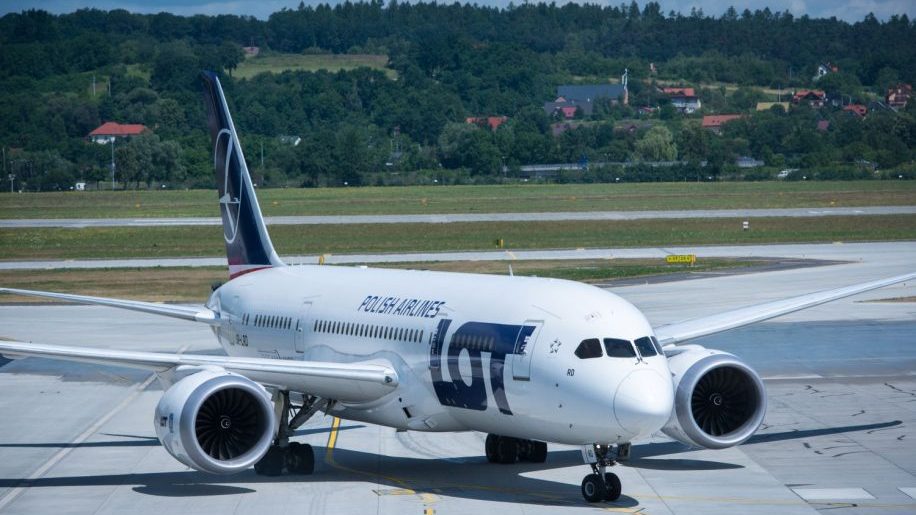LOT Polish Airlines has announced it will support a new tree-planting initiative run by government organisation State Forests.
The programme will cover 23 areas across Poland totalling 12,000 hectares.
Foresters will plant fast-growing tree species and encourage “natural regeneration” during the initial pilot phase.
According to the airline, scientists have calculated that each hectare of forest will absorb an additional 37 tonnes of carbon dioxide within 30 years. In total this will mean an additional one million tonnes absorbed.
Globally, flights produced 895 million tonnes of CO2 in 2018, according to the Air Transport Action Group.
The Polish government says it also plans to increase the area across which more trees are planted. It presented the initiative at the COP24 climate conference in Katowice last year.
“We respond to the challenges which are today of concern of the entire world,” said Andrzej Konieczny, CEO of State Forests.
“Climate change caused, among other [things], by greenhouse gases, including CO2, affects forests as well. Trees suffer from ever more frequent droughts and rapid natural disasters.
“Therefore, we should reduce the amount of carbon dioxide in the atmosphere, simultaneously reducing the emissions of the gas and increasing its absorption. In the latter, the role of forests is clear, as they naturally absorb CO2 during photosynthesis.
“The CFP assumes that by modifying the standard sustainable forest management, we can make the given fragment of a forest absorb even more CO2 than it already does.
“Considering the number of forests we have in Poland, and the fact that it is continuously growing, such activities applied at a larger scale could positively influence the general carbon balance”.
Some tree-planting programmes have in the past been criticised as a “greenwashing” measure that gives companies an excuse to keep polluting, with the effects minimal and forests not being maintained in the long-run.
LOT says it has undertaken other environmentally-focused initiatives including minimising the number of engines used by aircraft while taxiing after landing, optimising air routes based on modern software and reducing the weight of aircraft to reduce fuel burn.
Many airlines are announcing new programmes in the face of growing public concern over the carbon footprint of aviation.
Today, British Airways announced that it has partnered with Shell and renewable fuel company Velocys to submit a proposal to build Europe’s first commercial waste to jet fuel plant.
British Airways and Shell plan Europe’s first commercial waste to jet fuel plant


